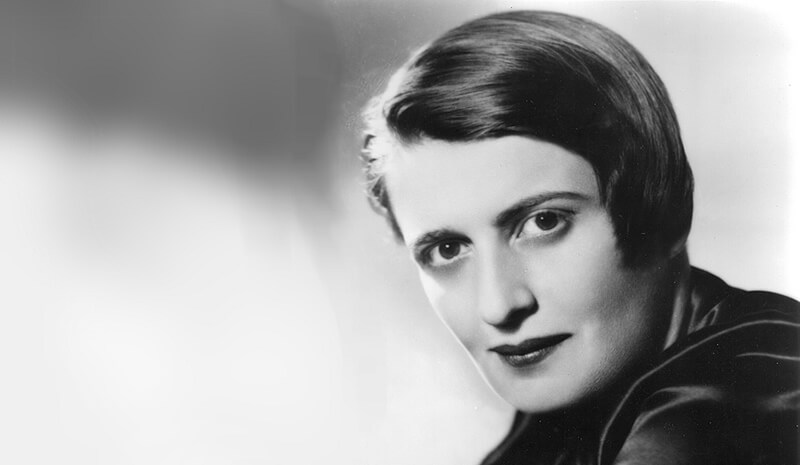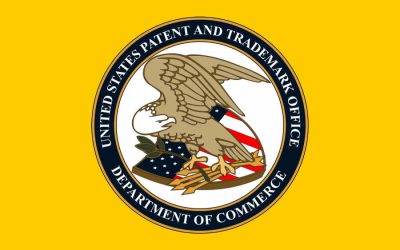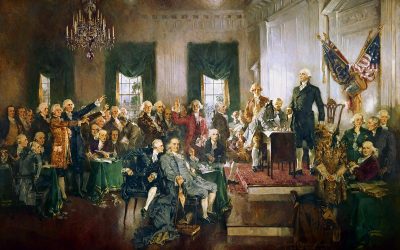Factual inaccuracies and historical misconceptions abound in debates about patents. So let’s first clear the air. As a preliminary matter, it’s important to recognize that early American legislators, judges, and commentators invoked Lockean natural rights theory in recognizing that patents rightly secured the “fruits of labors” of inventors (see here and here). This isn’t surprising, as John Locke himself embraced inventions and writings as property rights. He endorsed copyright as property in 1695 and he approved of “invention and arts” in his chapter on property in the Second Treatise (see here).
Some libertarians also assert that historically patents were statutory (monopoly) grants that were distinguished from “common law” court decisions that secured property rights in land, but this is myth masquerading as history (see here and here). We should reject it for the same reason we reject historical myths like the “robber barons,” because each uses a false account to bootstrap a normative argument. In fact, in the early American republic, courts secured patents as fundamental property rights: Judges created and applied to patents the same legal doctrines used to secure real estate, expansively protected patents, and provided constitutional protections to patents (see here, here and here).
In a short essay, of course, I cannot fully justify patents as property rights, but I can briefly summarize the case. At root, the justification for property rights is a justification for all types of property rights, such as farms, buildings, factories, oil and gas, radio spectrum, corporations, and inventions, among others. All “property” arises from the fact that one must produce the values required for a flourishing human life. (Here, “value” is not an economic concept, it is a moral concept, referring to those things a person produces to live a flourishing life.) Thus, the “right to property” defines the sphere of freedom necessary to create, use, and dispose of these values.
All production, whether of factories, cars, computers, or new biotech drugs, necessarily starts with a process of conceptually identifying both the values one seeks to create and the means to create them. This was Locke’s genius, as he was the first to recognize, albeit imperfectly, that property arises from the moral act of productive labor (see here and here). Ayn Rand’s genius was to recognize that man’s mind is his basic means of survival, that production is the application of reason to the problem of survival, and thus that all property is logically intellectual property at root.
Rand’s ethical theory makes explicit why property rights have never been limited to just physical objects: the genius and success of Anglo-American property law is that it recognized that property rights secure values, not physical objects. American courts have long recognized that “property … may be violated without the physical taking of property” given any act that “destroys it or its value.” (In re Jacobs, 98 N.Y. 98, 105 [1885].) This is the meaning of the natural rights metaphor that property rights secure the fruits—i.e., the use and profits—of one’s labors. As another court explained, “A man may be deprived of his property … without its being seized or physically destroyed, or taken from his possession.” (Wynehamer v. People, 13 N.Y. 378, 433 [1856].)
For this reason, American law justly secures property rights in novel and useful inventions—securing the right to make, use, and profit from the value created by an inventor’s productive labors. Patent law thus secures the same rights in inventions as it does in securing all values created by all types of productive labors. As an American court recognized in 1845: “we protect intellectual property, the labors of the mind, productions and interests as much a man’s own, and as much the fruit of his honest industry, as the wheat he cultivates, or the flocks he rears.” (Davoll v. Brown, 7 F. Cas. 197, 199 [C.C.D. Mass. 1845].)
All property is fundamentally intellectual property, because the human mind is the ultimate root of the values we produce to live flourishing lives—and all of these values are justly secured as property rights to their creators.
What to make of this normative insight?
First, it means that property rights are not fundamentally justified as a solution to disputes over “scarce” goods. To begin the moral justification for property rights from the economic concept of scarcity leaves unanswered the questions, “Why is producing values morally justified” and “Whence do values come?” Of course, property is a moral standard for resolving disputes, but this is only a logical corollary of the moral justification of property rights: The fruits of productive labor should be secured to their creators.
Second, property rights are objectively defined by the nature of the value secured to its owner. Thus, different types of property are secured differently under the law. Term limits and other unique legal protections or limits for patents are of no more fundamental import than other doctrinal differences in how the law secures property rights in water, chattels, land, spectrum, corporations, credit, etc. In short, neither scarcity nor term limits refute the fundamental, moral reason why patents are property rights. All property rights secure, in the words of Rand, “a man’s right to the product of his mind.”
This article first appeared at FEE.org.



